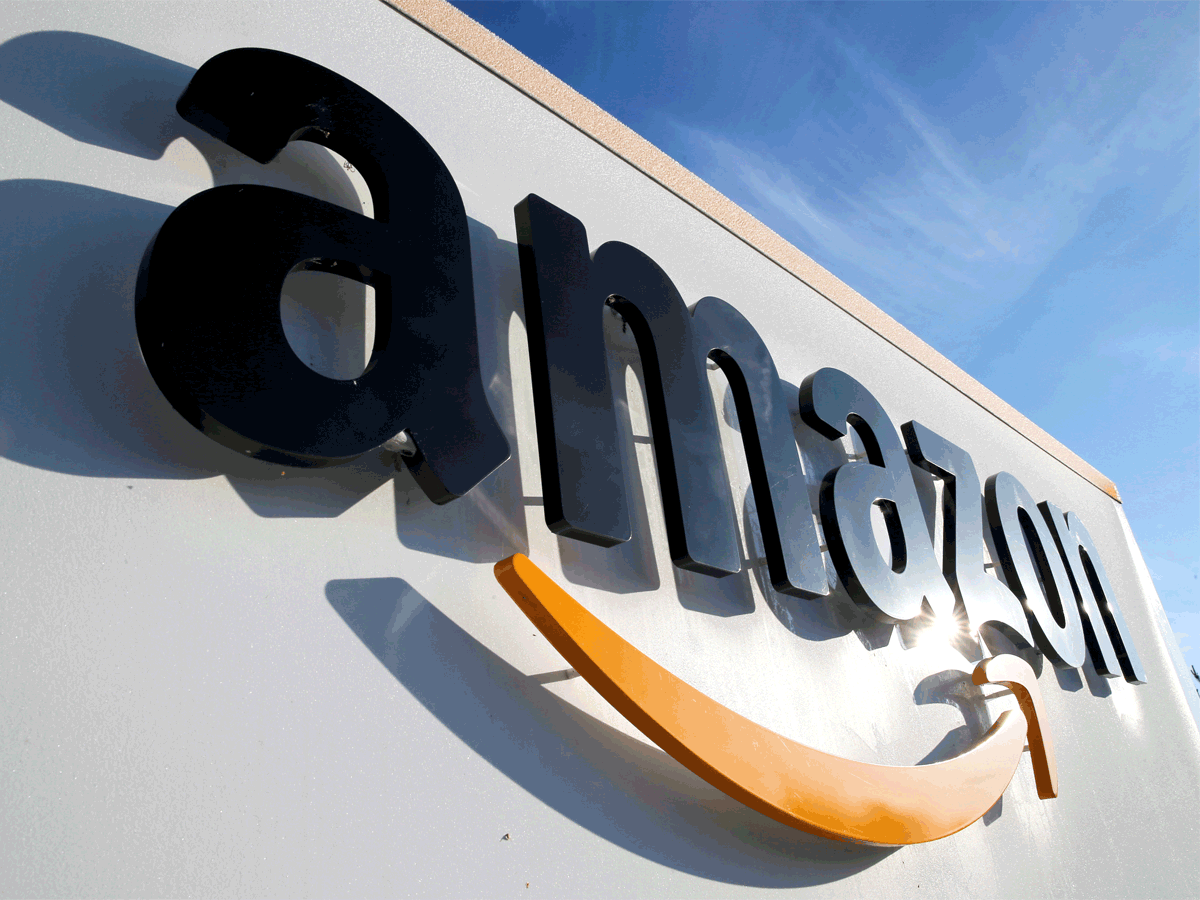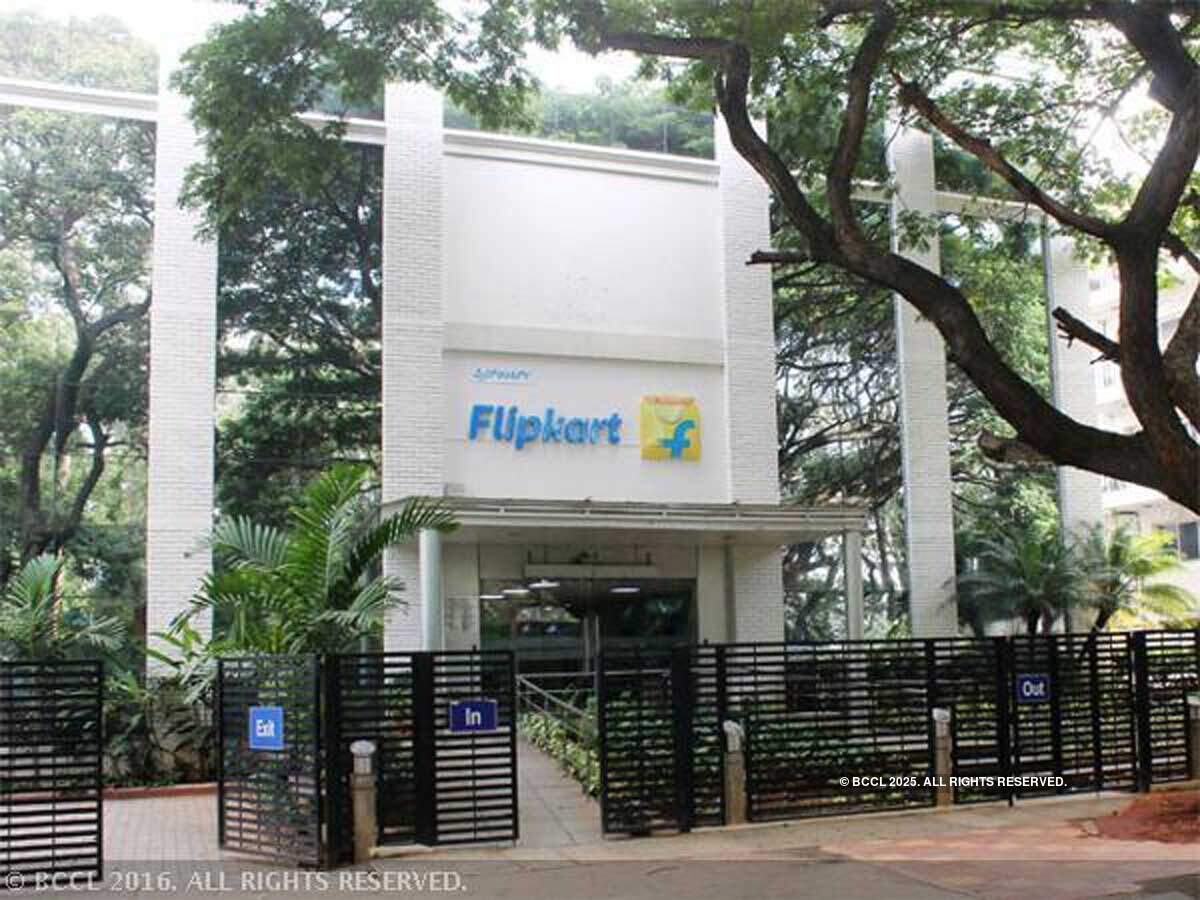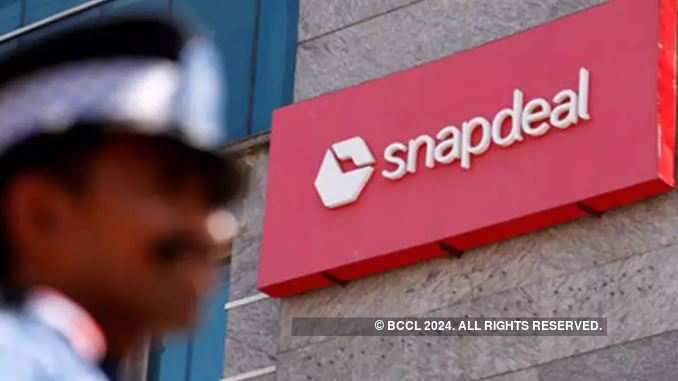 NEW YORK - Amazon wants to kill the supermarket checkout line.The online retailing giant is opening its first cashier-less supermarket, where shoppers can grab milk or eggs and walk out without waiting in line or ever opening their wallets. It's the latest sign that Amazon is serious about shaking up the $800 billion grocery industry.At the new store, which opened Tuesday in Amazon's hometown of Seattle, shoppers scan a smartphone app to enter the store. Cameras and sensors track what's taken off shelves. Items are charged to an Amazon account after leaving."I love the convenience of literally grabbing and going" said Art Kuniyuki, a payroll and benefits manager from Seattle, who spent $15 on Barilla pasta, Dove chocolate and other groceries shortly after the store opened.Called Amazon Go Grocery, the new store is an expansion of its 2-year-old chain of 25 Amazon Go convenience stores. It's 10,400 square feet - more than five times the size of the convenience stores - and stocks much more beyond the sodas and sandwiches found at Amazon Go.Cameron Janes, who helps oversee Amazon's physical stores, said the technology had to be tweaked to account for how people squeeze tomatoes to test for ripeness or rummage through avocados to find just the right one. Nothing at the store is weighed. One blood orange goes for 53 cents; a banana is 19 cents.Amazon is not new to groceries. It made a splash in 2017 when it bought Whole Foods and its 500 stores. It's also been expanding its online grocery delivery service. But it's still far behind rival Walmart, the nation's largest grocer, which has more than 4,700 stores. Walmart's online grocery service has also been popular with customers, who buy online and then drive to a store to pick up their order.Amazon also plans to open another type of grocery store in Los Angeles sometime this year, but the company said it won't use the cashier-less technology at that location and has kept other details under wraps. The company declined to say if it plans to open more Amazon Go Grocery stores, and said there are no plans to bring the technology to Whole Foods stores.Much of the fruits and vegetables come from the same suppliers at Whole Foods, Janes said. And it has products from the Whole Foods store brand 365, such as organic oatmeal and bagged baby carrots. But it also sells Oreos, Cheez-Its and other stuff banned from the natural grocer.Families can shop together with just one phone scanning everyone in. Anything they grab and leave the store with will be added to the tab of the person who signed them in. But shoppers shouldn't help out a stranger reaching for the top shelf: Amazon warns that grabbing an item for someone else means you'll be charged for it if they walk out with it.Hoping to catch up to Amazon, other retailers and startups are racing to bring similar cashier-less technology to stores. Earlier this month, 7-Eleven said it is testing a cashier-less store for employees inside its offices in Irving, Texas.But cashier-less stores have come under scrutiny from lawmakers and advocates who say they discriminate against low-income people who may not have a credit card or bank account. Amazon has since let customers pay with cash at its convenience stores, and the company said shoppers can do the same at the grocery store by alerting a worker to let them in through the turnstile.The stores also eliminates the job of cashiers. Janes declined to say exactly how many people the store employs, only saying it is "several dozen." Workers greet customers and walk around aisles restocking shelves. One employee stands by the alcohol section to check IDs of shoppers who want wine or beer.While cashier-less stores remove the annoyance of waiting in line to pay, it also kills some joys of the supermarket. There's no one to bag groceries. Instead, Amazon gives out reusable bags so shoppers can fill them as they shop. And there's no deli counter, butcher or fishmonger. Instead, sliced ham, steaks and salmon fillets are already packaged and found in refrigerated shelves."Just walk out technology is kind of cool, in theory," said David Bishop, a partner at retail consultancy Brick Meets Click, but he said shoppers decide where to shop based on other factors besides how quickly they can get in and out of the store.Bishop said those who want thinly sliced ham may skip Amazon Go Grocery and walk two blocks away to the Kroger-owned QFC supermarket, which is about five times the size.Still, Bishop said, it's hard for the grocery industry to ignore Amazon, which has the cash and technology to experiment with groceries. "They're not giving up," he said of Amazon.
NEW YORK - Amazon wants to kill the supermarket checkout line.The online retailing giant is opening its first cashier-less supermarket, where shoppers can grab milk or eggs and walk out without waiting in line or ever opening their wallets. It's the latest sign that Amazon is serious about shaking up the $800 billion grocery industry.At the new store, which opened Tuesday in Amazon's hometown of Seattle, shoppers scan a smartphone app to enter the store. Cameras and sensors track what's taken off shelves. Items are charged to an Amazon account after leaving."I love the convenience of literally grabbing and going" said Art Kuniyuki, a payroll and benefits manager from Seattle, who spent $15 on Barilla pasta, Dove chocolate and other groceries shortly after the store opened.Called Amazon Go Grocery, the new store is an expansion of its 2-year-old chain of 25 Amazon Go convenience stores. It's 10,400 square feet - more than five times the size of the convenience stores - and stocks much more beyond the sodas and sandwiches found at Amazon Go.Cameron Janes, who helps oversee Amazon's physical stores, said the technology had to be tweaked to account for how people squeeze tomatoes to test for ripeness or rummage through avocados to find just the right one. Nothing at the store is weighed. One blood orange goes for 53 cents; a banana is 19 cents.Amazon is not new to groceries. It made a splash in 2017 when it bought Whole Foods and its 500 stores. It's also been expanding its online grocery delivery service. But it's still far behind rival Walmart, the nation's largest grocer, which has more than 4,700 stores. Walmart's online grocery service has also been popular with customers, who buy online and then drive to a store to pick up their order.Amazon also plans to open another type of grocery store in Los Angeles sometime this year, but the company said it won't use the cashier-less technology at that location and has kept other details under wraps. The company declined to say if it plans to open more Amazon Go Grocery stores, and said there are no plans to bring the technology to Whole Foods stores.Much of the fruits and vegetables come from the same suppliers at Whole Foods, Janes said. And it has products from the Whole Foods store brand 365, such as organic oatmeal and bagged baby carrots. But it also sells Oreos, Cheez-Its and other stuff banned from the natural grocer.Families can shop together with just one phone scanning everyone in. Anything they grab and leave the store with will be added to the tab of the person who signed them in. But shoppers shouldn't help out a stranger reaching for the top shelf: Amazon warns that grabbing an item for someone else means you'll be charged for it if they walk out with it.Hoping to catch up to Amazon, other retailers and startups are racing to bring similar cashier-less technology to stores. Earlier this month, 7-Eleven said it is testing a cashier-less store for employees inside its offices in Irving, Texas.But cashier-less stores have come under scrutiny from lawmakers and advocates who say they discriminate against low-income people who may not have a credit card or bank account. Amazon has since let customers pay with cash at its convenience stores, and the company said shoppers can do the same at the grocery store by alerting a worker to let them in through the turnstile.The stores also eliminates the job of cashiers. Janes declined to say exactly how many people the store employs, only saying it is "several dozen." Workers greet customers and walk around aisles restocking shelves. One employee stands by the alcohol section to check IDs of shoppers who want wine or beer.While cashier-less stores remove the annoyance of waiting in line to pay, it also kills some joys of the supermarket. There's no one to bag groceries. Instead, Amazon gives out reusable bags so shoppers can fill them as they shop. And there's no deli counter, butcher or fishmonger. Instead, sliced ham, steaks and salmon fillets are already packaged and found in refrigerated shelves."Just walk out technology is kind of cool, in theory," said David Bishop, a partner at retail consultancy Brick Meets Click, but he said shoppers decide where to shop based on other factors besides how quickly they can get in and out of the store.Bishop said those who want thinly sliced ham may skip Amazon Go Grocery and walk two blocks away to the Kroger-owned QFC supermarket, which is about five times the size.Still, Bishop said, it's hard for the grocery industry to ignore Amazon, which has the cash and technology to experiment with groceries. "They're not giving up," he said of Amazon.
 New Delhi : The National Company Law Appellate Tribunal (NCLAT) on Monday set aside the insolvency proceedings against e-commerce major Flipkart.CloudWalker, an operating creditor, which imported and retailed LED TVs on Flipkart's platform, dragged the company to the NCLT last year over alleged default of Rs 26.95 crore towards procured imported televisions as per the supply agreement. On October 24, the tribunal admitted the its application for initiation of corporate insolvency resolution process (CIRP) against Flipkart, which moved the NCLAT.The three judge NCLAT bench said that the the operational creditor failed to submit any documents to prove in existence of the operational debt and the amount in default."The operational creditor also failed to submit the copy of invoices and copies of all the documents referred in the application to be submitted in Form 5, under Section 9 of the Code (IBC). The operational creditor has failed to submit the relevant documents under which the debt has become due," said the judgement.Further, the NCLAT noted that CloudWalker Streaming Technologies only filed the copy of the 'Supply Agreement', and the projections email, "which by themselves can by no stretch of the imagination constitute proof of debt"."We set aside the impugned order dated 24th October 2019 passed by the Adjudicating Authority (NCLT) and the application filed under Section 9 by the Operational Creditor Cloudwalker Streaming Technologies Pvt Ltd., company petition -- CP (IB)260/BB/2019 -- is rejected. The Flipkart India Pvt Ltd is released from the 'Corporate Insolvency Resolution Process'," it said.Flipkart, in its response dated September 25, has denied the allegations and said that there is no admitted debt or liability as it had already paid an amount of Rs 85.57 crore towards the invoices raised by Cloudwalker."The Corporate Debtor (Flipkart) is not liable to make any payment to the Operational Creditor," said the Walmart-backed e-commerce major in its response.
New Delhi : The National Company Law Appellate Tribunal (NCLAT) on Monday set aside the insolvency proceedings against e-commerce major Flipkart.CloudWalker, an operating creditor, which imported and retailed LED TVs on Flipkart's platform, dragged the company to the NCLT last year over alleged default of Rs 26.95 crore towards procured imported televisions as per the supply agreement. On October 24, the tribunal admitted the its application for initiation of corporate insolvency resolution process (CIRP) against Flipkart, which moved the NCLAT.The three judge NCLAT bench said that the the operational creditor failed to submit any documents to prove in existence of the operational debt and the amount in default."The operational creditor also failed to submit the copy of invoices and copies of all the documents referred in the application to be submitted in Form 5, under Section 9 of the Code (IBC). The operational creditor has failed to submit the relevant documents under which the debt has become due," said the judgement.Further, the NCLAT noted that CloudWalker Streaming Technologies only filed the copy of the 'Supply Agreement', and the projections email, "which by themselves can by no stretch of the imagination constitute proof of debt"."We set aside the impugned order dated 24th October 2019 passed by the Adjudicating Authority (NCLT) and the application filed under Section 9 by the Operational Creditor Cloudwalker Streaming Technologies Pvt Ltd., company petition -- CP (IB)260/BB/2019 -- is rejected. The Flipkart India Pvt Ltd is released from the 'Corporate Insolvency Resolution Process'," it said.Flipkart, in its response dated September 25, has denied the allegations and said that there is no admitted debt or liability as it had already paid an amount of Rs 85.57 crore towards the invoices raised by Cloudwalker."The Corporate Debtor (Flipkart) is not liable to make any payment to the Operational Creditor," said the Walmart-backed e-commerce major in its response.
Amazon India has launched a new program to bring more women back in to the workplace. Rekindle 2.0 as this initiative has been called, will be rolled out at its Bengaluru office, followed by other cities in India.The company has over 62,000 employees in India, and diversity is an important thrust area for Amazon, said Deepti Varma, Director, HR – India and EMEA, Amazon. “Rekindle is aimed at women who have taken a break and need help coming back to work.This will have a lot more flexibility and coaching for them,” she said. Prospective employees will start with working on projects or assignments which can be managed part-time to ease them into working in a full-time role. The company has selected specific jobs or roles across different functions to launch this program, said Varma. This would be across both tech, and non-tech roles. Women hired through this program would receive more structured on-boarding and focused mentoring to help them ease into the workplace.Globally, about 40% of Amazon’s workforce comprises women and Varma said that the numbers are similar for India. “The feedback we got was that a lot of women needed help to get back to the workplace – they needed something to help them start," she said. The company is using its internal employee networks and social media platforms to spread the word on the program initially. Beyond this, Amazon has also been engaging with 2nd and 3rd year engineering students and mentoring them for a long term career in technology over the last three year. Last year, over 100 people were hired through this initiative.The company has also been working at increasing the overall diversity of its workforce and ensuring that HR policies keep pace with this. For instance, the company offers 12 weeks of paternity leave, as well as adoption leave to its LGBTQ employees.
 A Gurgaon court has restrained Club Factory and one of its employees from sharing, divulging, using or utilising Snapdeal's trade secrets, financial data and confidential information. Civil Judge Suyasha Jawa also directed Club Factory and its employee, who earlier worked for Snapdeal, to refrain from using Snapdeal's trade secrets in approaching, contacting, soliciting, enticing, inducing the common clients, customer and business partners.The court gave its direction on an application by Snapdeal which had alleged that its employee joined its competitor Club Factory and "in collusion" with each other, they have been seeking to entice clients and business partners of Snapdeal."Appreciating the peculiar facts and circumstances of the instant case, it appears necessary to exercise the discretion in granting injunction in favour of the plaintiff to restrain defendants from sharing, divulging, using or utilising trade secrets, financial data and confidential information of plaintiff company (Snapdeal) in their access, which may cause harm to the reputation and goodwill of plaintiff company."Such information may also be refrained from being used in approaching, contacting, soliciting, enticing, inducing the common client/customer/business partners," it said.The plea had sought the court orders to restrain the e-commerce company, claiming that it was being done to cause financial loss as well as loss of Snapdeal's goodwill.In its order, the court said as per business ethics, it was expected that ex-employees do not leak or misuse information of confidential nature or disclose it to a competitor of his ex-employer."Not only in terms of the clause during employment that restricted Defendant No 1 from using information sensitive to the business of plaintiff, but also in terms of business ethics, it is expected that ex-employee does not leak or misuse information of confidential nature or disclose it to a competitor of his ex-employer to prejudice the interest of plaintiff company."Otherwise, beyond the scope of use of this confidential information allegedly obtained and available with Singhal (Snapdeal's ex-employee), Club Factory is free to exercise its right to freedom of trade, in free market economy, and as such there is no restriction upon access to its clientage," it said.The court has put up the matter for further hearing on March 21.
A Gurgaon court has restrained Club Factory and one of its employees from sharing, divulging, using or utilising Snapdeal's trade secrets, financial data and confidential information. Civil Judge Suyasha Jawa also directed Club Factory and its employee, who earlier worked for Snapdeal, to refrain from using Snapdeal's trade secrets in approaching, contacting, soliciting, enticing, inducing the common clients, customer and business partners.The court gave its direction on an application by Snapdeal which had alleged that its employee joined its competitor Club Factory and "in collusion" with each other, they have been seeking to entice clients and business partners of Snapdeal."Appreciating the peculiar facts and circumstances of the instant case, it appears necessary to exercise the discretion in granting injunction in favour of the plaintiff to restrain defendants from sharing, divulging, using or utilising trade secrets, financial data and confidential information of plaintiff company (Snapdeal) in their access, which may cause harm to the reputation and goodwill of plaintiff company."Such information may also be refrained from being used in approaching, contacting, soliciting, enticing, inducing the common client/customer/business partners," it said.The plea had sought the court orders to restrain the e-commerce company, claiming that it was being done to cause financial loss as well as loss of Snapdeal's goodwill.In its order, the court said as per business ethics, it was expected that ex-employees do not leak or misuse information of confidential nature or disclose it to a competitor of his ex-employer."Not only in terms of the clause during employment that restricted Defendant No 1 from using information sensitive to the business of plaintiff, but also in terms of business ethics, it is expected that ex-employee does not leak or misuse information of confidential nature or disclose it to a competitor of his ex-employer to prejudice the interest of plaintiff company."Otherwise, beyond the scope of use of this confidential information allegedly obtained and available with Singhal (Snapdeal's ex-employee), Club Factory is free to exercise its right to freedom of trade, in free market economy, and as such there is no restriction upon access to its clientage," it said.The court has put up the matter for further hearing on March 21.
 New Delhi : To provide wider market to products made by women self-help groups (SHGs), the rural development ministry will list them on the Centre's e-commerce platform, sources said on Sunday. The government will also help the SHGs in branding, packaging and pricing their products to make them more marketable, they said.Now the products made by the SHGs will be a click way, a senior official in the ministry said.The groups will be listed on the Centre's e-commerce portal Government e-Marketplace (GeM), the official said.This step will help in a big way in making women in villages financially independent and in overall improvement of the rural economy, officials in the ministry said.Currently, there are 58.5 lakh SHGs under the Deendayal Antyodaya Yojana-National Rural Livelihoods Mission (DAY-NULM), with a membership of over six crore women.Ministries and departments under the central government and public sector undertakings are expected to make procurement from the GeM platform which is under the commerce ministry.GeM was launched in August 2016 to increase transparency and efficiency in the public procurement process.Currently, GeM has over 3.36 lakh sellers out of which 74,240 are micro and small sellers. The total transaction value stood at Rs 47, 612 crores so far.Finance Minister Nirmala Sitharaman had proposed to increase GeM's turnover to Rs 3 lakh crore ahead.
New Delhi : To provide wider market to products made by women self-help groups (SHGs), the rural development ministry will list them on the Centre's e-commerce platform, sources said on Sunday. The government will also help the SHGs in branding, packaging and pricing their products to make them more marketable, they said.Now the products made by the SHGs will be a click way, a senior official in the ministry said.The groups will be listed on the Centre's e-commerce portal Government e-Marketplace (GeM), the official said.This step will help in a big way in making women in villages financially independent and in overall improvement of the rural economy, officials in the ministry said.Currently, there are 58.5 lakh SHGs under the Deendayal Antyodaya Yojana-National Rural Livelihoods Mission (DAY-NULM), with a membership of over six crore women.Ministries and departments under the central government and public sector undertakings are expected to make procurement from the GeM platform which is under the commerce ministry.GeM was launched in August 2016 to increase transparency and efficiency in the public procurement process.Currently, GeM has over 3.36 lakh sellers out of which 74,240 are micro and small sellers. The total transaction value stood at Rs 47, 612 crores so far.Finance Minister Nirmala Sitharaman had proposed to increase GeM's turnover to Rs 3 lakh crore ahead.
 NEW YORK - Amazon wants to kill the supermarket checkout line.
NEW YORK - Amazon wants to kill the supermarket checkout line.

